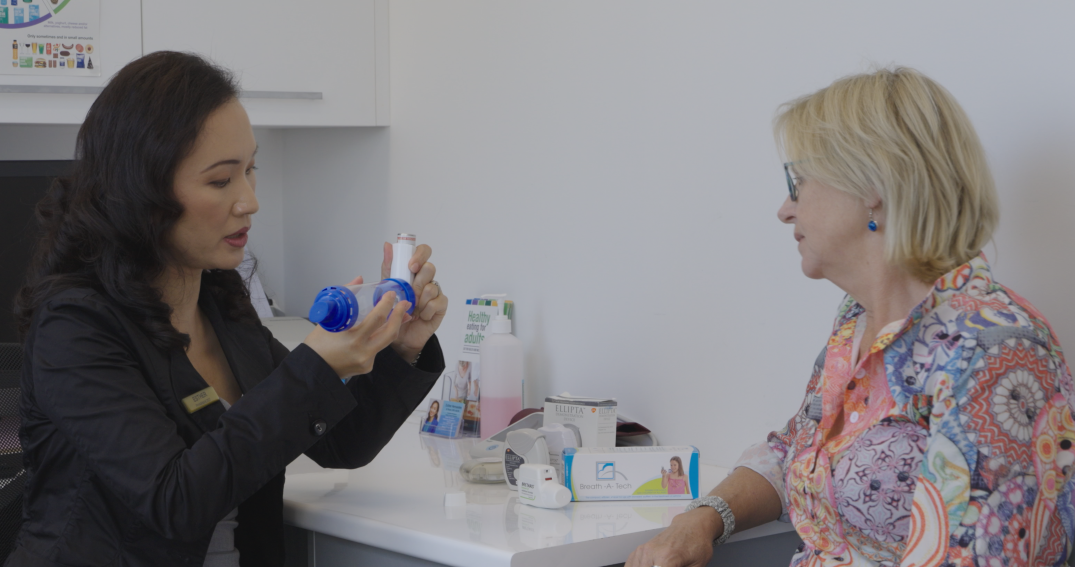UWA PLUS
Prescribing Skills for Pharmacists [PHCYM505]
Learners will engage in the analysis of clinical case studies, integrating person-centered factors to formulate tailored treatment management plans. Learners will explore strategies to mitigate risks associated with polypharmacy, inappropriate medication use and antimicrobial resistance, while advocating for rational prescribing practices grounded in evidence-based medicine. Learners will be equipped to navigate the improve medication management to support the delivery of safe, effective, and personal-centered care within their practice settings. Through simulated scenarios and real-world case studies, learners will demonstrate their ability to engage in person-centered clinical reasoning. Through simulated practice, in-person placements and in person workshops, learners will be well prepared to support their communities to support treatment management plans including prescribing.
Upon successful completion of this micro-credential, you will receive:
- 12 PD Points which can be converted to academic credit
- A Certificate of Achievement
- A UWA Plus Professional Development Transcript, listing all successfully completed micro-credentials
- Delivery mode
- This course will be delivered online asynchronously.
- Course Dates
- Dates to be advised for the second half of 2026
- The course is accredited by the Australian Pharmacy Council and approved by WA Health for pharmacist training to participate in the Enhanced Access Community Pharmacy Pilot.
- Registration
- Dates to be advised for the second half of 2026.
- Efforts
- 300 hours comprising:
- Online activities
- 1 week in person placement and 1 week face-to-face workshops (2 weeks in total)
- Academic lead
- Dr Amy Page, Pharmacist of the Year 2024
- Cost
- $9350 inc. GST
- Critical Information Summary
- Prescribing Skills for Pharmacists

What you'll learn
Participants will be able to:
Evaluate and document the outcome of prescribed medicines
Prescribe medicines legally, ethically, with integrity, safely, and compliance
Respond appropriately to adverse outcomes and to the review
Accurately document all prescribing decisions and clinical reasoning
Maintain and improve prescribing practice
Use a culturally safe, respectful, inclusive, sensitive and collaborative approach to undertake a comprehensive consultation and determine the consumer's needs
Recognise personal competence and respond accordingly to provide optimal care
Prescribe medicines collaboratively with consumers and other health professionals
Consider the management options using a consumer-focused approach and an understanding of relevant evidence
Collaborate with consumers and other health professionals to support effective care

Why study this course?
This micro-credential will develop your clinical and consultation skills so is relevant for any pharmacist working in any setting to develop advanced skills. It will also prepare pharmacists for being able to prescribe.This micro-credential develops advanced person centered care and consultation skills and the application of clinical knowledge to prepare pharmacists to be credentialled as prescribing pharmacists.
For community pharmacists, completing this micro-credential along with PHCYM506 Clinical Skills for Pharmacists Enhanced Access Program will allow them to participate in the community enhanced access program delivered in community pharmacies in participating jurisdictions.
Who should study this course?
Australian registered practicing pharmacists who want to be credentialled as pharmacist prescribers should undertake this micro-credential. After completing this micro-credential, pharmacists will be credentialled as prescribers.
Recommended prior knowledge?
Pharmacists must have already completed PHCYM504 prior to undertaking this micro-credential.
All pharmacists must be vaccination trained prior to undertaking PHCYM505. If they are not vaccination trained prior to commencing this micro-credential, they must concurrently complete UWA's vaccination training at an additional cost. The UWA vaccination training includes a requirement to have current First Aid training and anaphylaxis training.What's next after this course?
Career outcomes:
Once successfully completed, pharmacists will have met the skills component to prepare them for prescribing.
Pharmacists will be able to demonstrate that they have met all aspects of the NPS Prescribing Competencies and Australian Pharmacy Council Performance Outcomes for prescribing pharmacists after completing this course.
Options for further study:
Students can progress to complete the Graduate Certificate in Quality Use of Medicines and Prescribing that will require another 12 credit points of learning after successfully completing this micro-credential. In other words, this micro-credential takes you half way to having completed the Graduate Certificate in Quality Use of Medicines and Prescribing!
Students can also progress to enrol in the Master of Advanced Clinical Practice, which will require up to another 60 credit points of learning. This Micro-credential provides students with 12 credit points towards either of those qualifications.
Other options for related study:
Students may want to explore the:
- Graduate Certificate in Advanced Medicines Management
- Graduate Certificate in Diabetes Management and Education
- Doctor of Pharmacy Practice
Students may elect to undertake the Doctor of Pharmacy Practice if they have completed the Graduate Certificate in Quality Use of Medicines and Prescribing by undertaking PHCYM503 Medication Management Reviews and Aged Care Pharmacy and PHCYM502 Diabetes Education.
Become a mentor or preceptor for future students:
Graduates will be given the opportunity to become preceptors or mentors for future students. This opportunity to remain involved in the course delivery and contribute to upskilling the pharmacist and allied health practitioner workforce to contribute to diabetes education is a valuable opportunity for practitioners.

